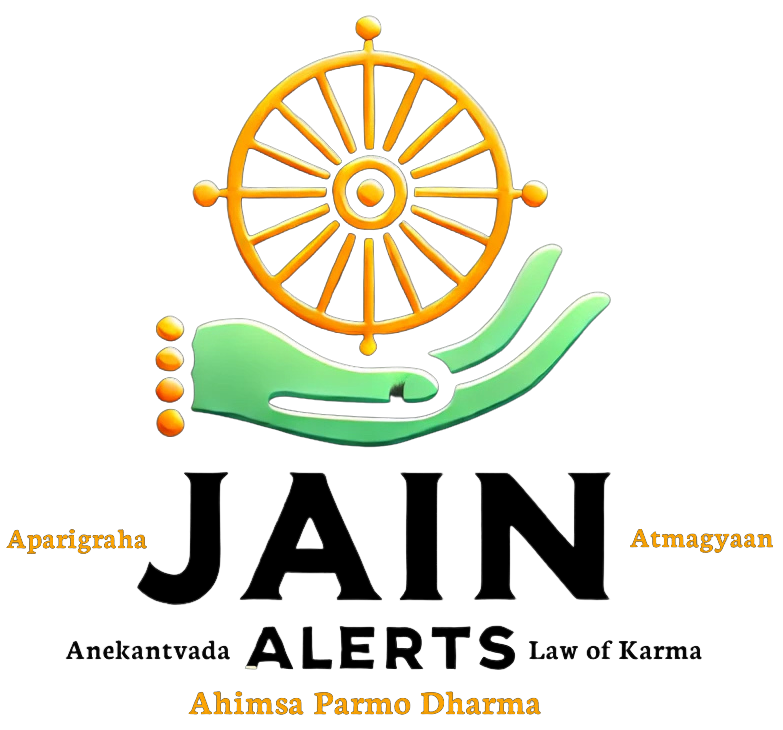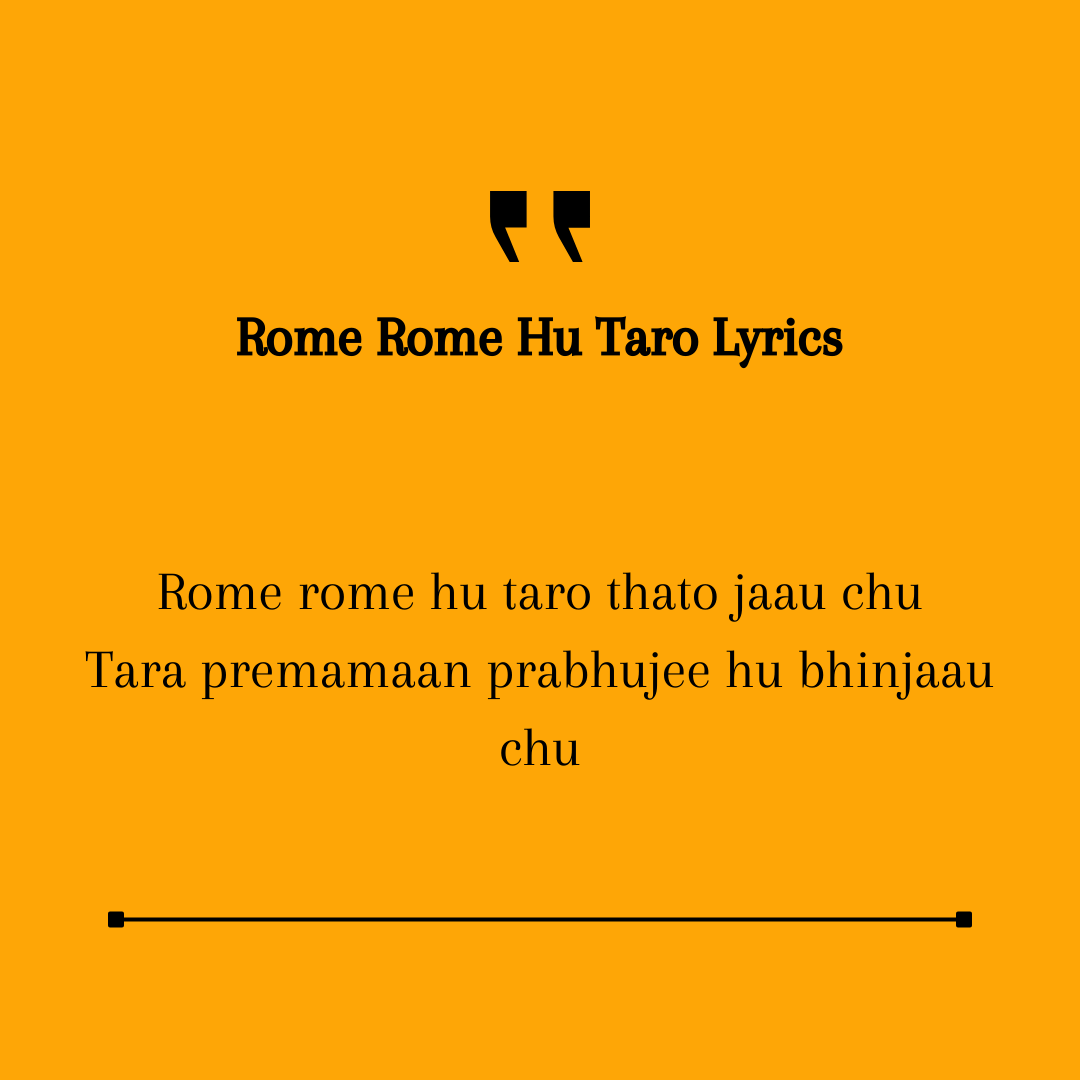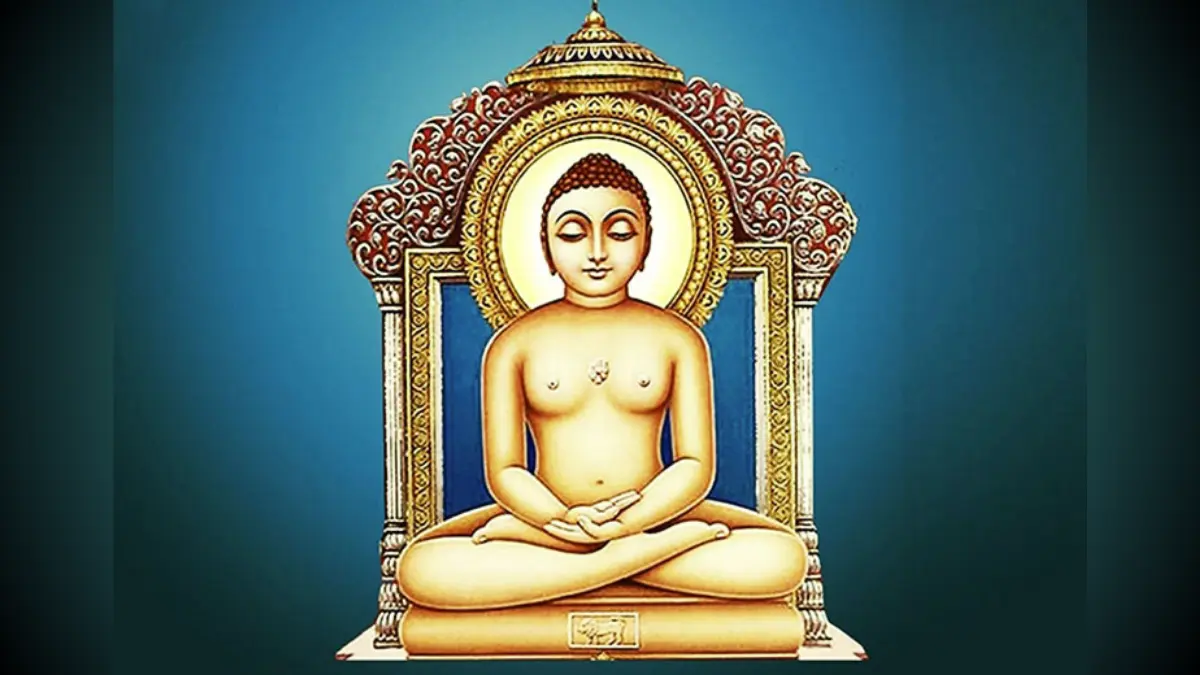Table of Contents
Introduction
“Rome Rome Hu Taro” is a beautiful bhajan that deeply resonates with the hearts of devotees. This bhajan, sung in Gujarati, expresses a profound sense of devotion and surrender to the divine. It captures the essence of bhakti (devotion) and the longing for a spiritual connection with the supreme being, often referred to as Prabhu (Lord) in the lyrics. This blog post will delve into the lyrics, meaning, and significance of “Rome Rome Hu Taro,” providing an in-depth understanding of this devotional song.
Rome Rome Hu Taro Lyrics
Here are the heartfelt lyrics of “Rome Rome Hu Taro”:
Rome rome hu taro thato jaau chu
Tara premamaan prabhujee hu bhinjaau chu
Have paravade nahee rahevaanun Tarathee doora,
taare rahevaanu haiyaamaan haajaraa hajura,
Tara smaranamaan.(2) khovaato jaau chu
Tara premamaan prabhujee hu bhinjaau chu
Rome rome hu taro thato jaau chu
Tara premamaan prabhujee hu bhinjaau chu
Have jodu nahee jagamaan hu naato koithee,
Mane vahaalo tu vahaalo tu vahaalo sahuthee,
taaree najaromaan.(2) najaraato jaau chu
Tara premamaan prabhujee hu bhinjaau chu
Rome rome hu taro thato jaau chu
Tara premamaan prabhujee hu bhinjaau chu
Have sharanu deeghu chhe to shata raakhaje,
Aa baala ne Tara sharane raakhaje,
Vitaraaga Tara.(2) thakee hu sohaau chu
Tara premamaan prabhujee hu bhinjaau chu
Rome rome hu taro thato jaau chu
Tara premamaan prabhujee hu bhinjaau chu
Meaning and Interpretation
The bhajan “Rome Rome Hu Taro” is an expression of complete surrender and devotion to the divine. Let’s break down the meaning of each stanza:
- Rome rome hu taro thato jaau chu, Tara premamaan prabhujee hu bhinjaau chu
- This opening line signifies the devotee’s desire to be immersed in the divine presence in every breath and every cell. The repetition of “hu taro” emphasizes the total submission to the Lord’s love.
- Have paravade nahee rahevaanun Tarathee doora, taare rahevaanu haiyaamaan haajaraa hajura, Tara smaranamaan. (2) khovaato jaau chu, Tara premamaan prabhujee hu bhinjaau chu
- Here, the devotee declares that they no longer wish to live far from the divine abode. Instead, they seek to dwell in constant remembrance of the Lord, feeling His presence in their heart. The act of being “khovaato” (lost) in divine remembrance signifies deep spiritual absorption.
- Have jodu nahee jagamaan hu naato koithee, Mane vahaalo tu vahaalo tu vahaalo sahuthee, taaree najaromaan. (2) najaraato jaau chu, Tara premamaan prabhujee hu bhinjaau chu
- The devotee expresses detachment from worldly ties and relationships, proclaiming that their sole beloved is the Lord. The phrase “najaraato jaau chu” highlights the desire to remain under the divine gaze, finding solace and joy in the Lord’s sight.
- Have sharanu deeghu chhe to shata raakhaje, Aa baala ne Tara sharane raakhaje, Vitaraaga Tara. (2) thakee hu sohaau chu, Tara premamaan prabhujee hu bhinjaau chu
- In this stanza, the devotee seeks refuge and protection under the Lord’s shelter, likening themselves to a child (baala) needing the divine care. The term “Vitaraaga” refers to the detached nature of the divine, yet the devotee finds beauty and peace in this transcendental love.
Significance of the Bhajan
“Rome Rome Hu Taro” holds significant spiritual importance for devotees. It encapsulates the essence of bhakti, emphasizing total surrender and unwavering love for the divine. Singing or listening to this bhajan can evoke deep feelings of devotion and connect the devotee to a higher spiritual plane.
- Devotional Depth: The lyrics convey an intense longing for divine connection, making it a powerful tool for meditation and spiritual practice.
- Emotional Resonance: The repetition and simple yet profound words allow devotees to immerse themselves emotionally, experiencing a sense of unity with the divine.
- Cultural Significance: This bhajan, being in Gujarati, holds cultural significance and is often sung in temples and during religious gatherings, fostering a sense of community and shared devotion.
Conclusion
“Rome Rome Hu Taro” is more than just a song; it is a profound expression of divine love and devotion. By understanding its lyrics and meaning, devotees can deepen their spiritual practice and experience a closer connection with the divine. This bhajan serves as a reminder of the power of surrender and the beauty of unwavering devotion to the Lord.
Looking for more Jain bhajan lyrics? Explore a wide collection of devotional songs on our site. Delve deeper into the spiritual journey with our diverse selection of Jain bhajans.



